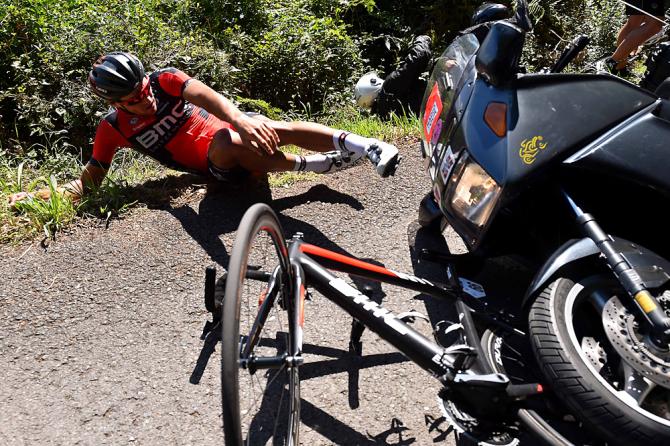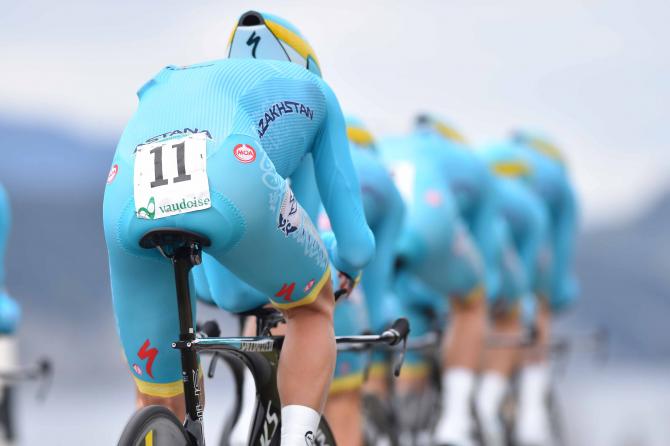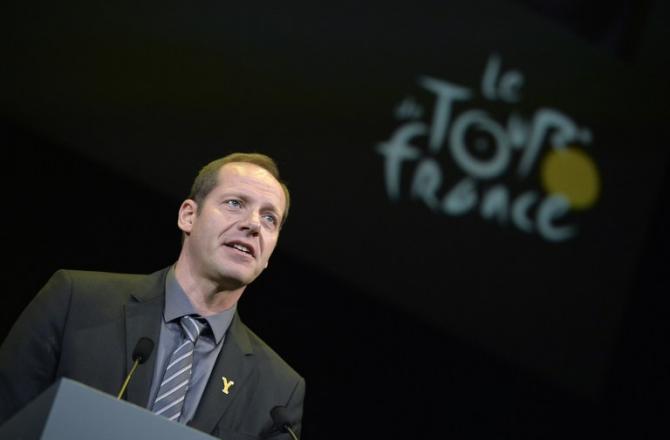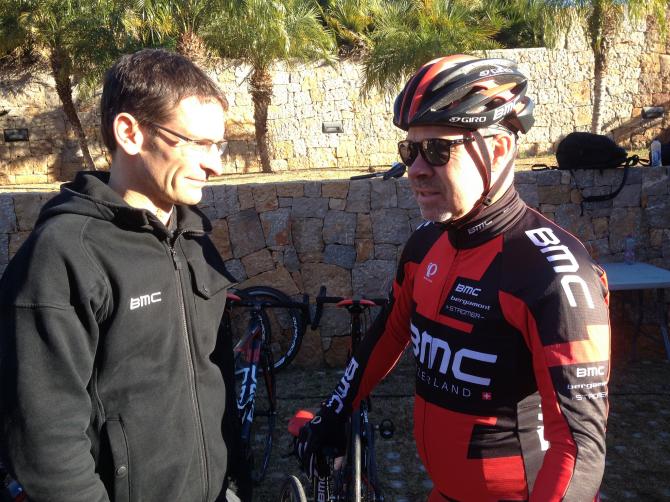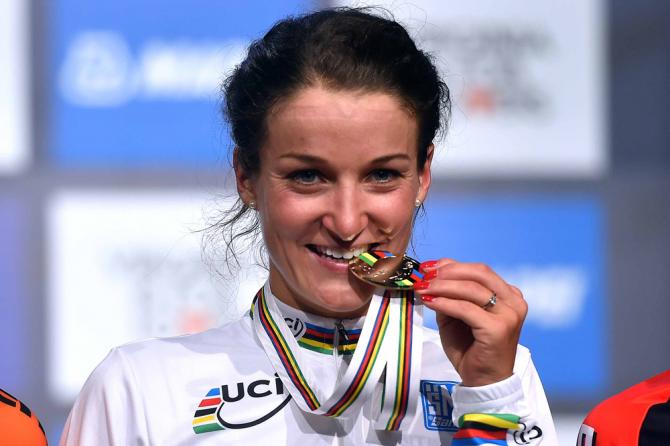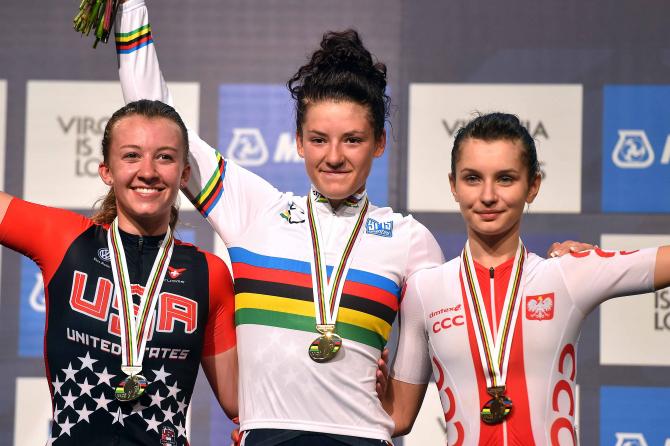UCI President Brian Cookson Q&A
Rider safety, Astana, ASO, sponsorship and the Women's WorldTour
The latest race content, interviews, features, reviews and expert buying guides, direct to your inbox!
You are now subscribed
Your newsletter sign-up was successful
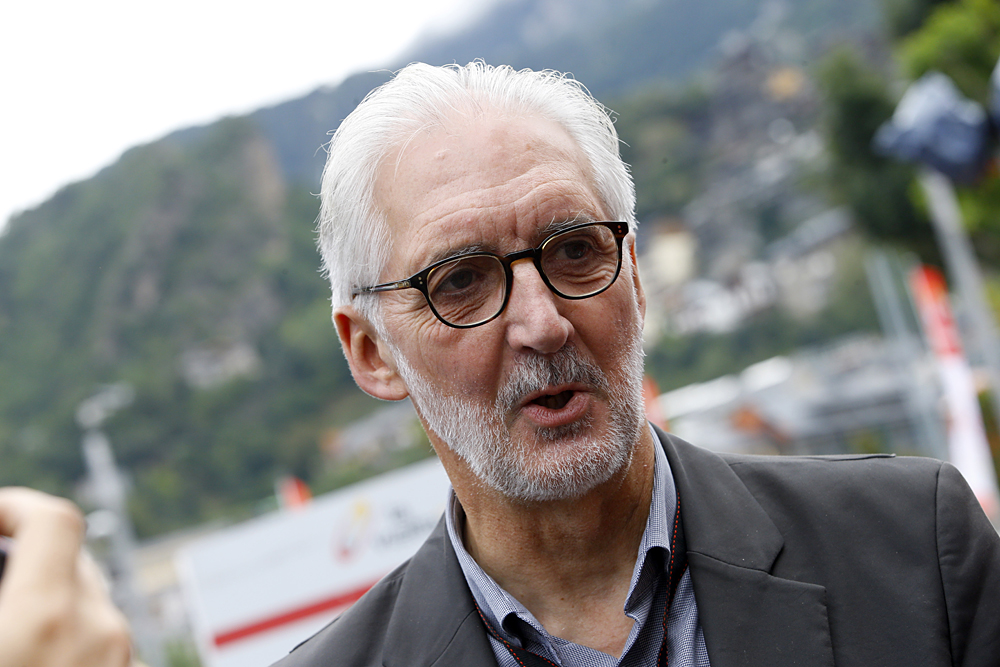
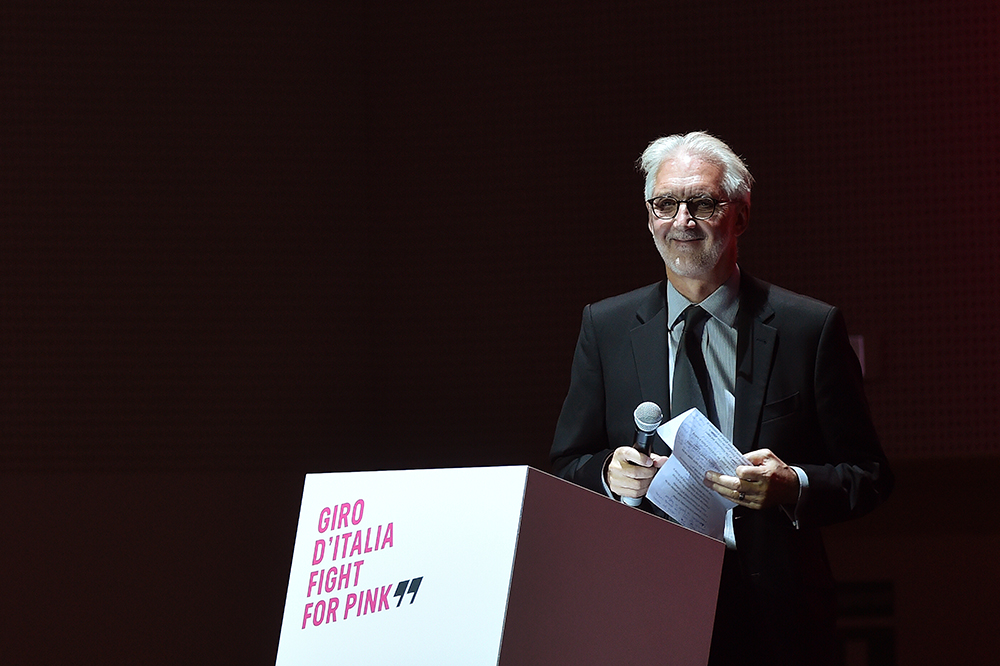
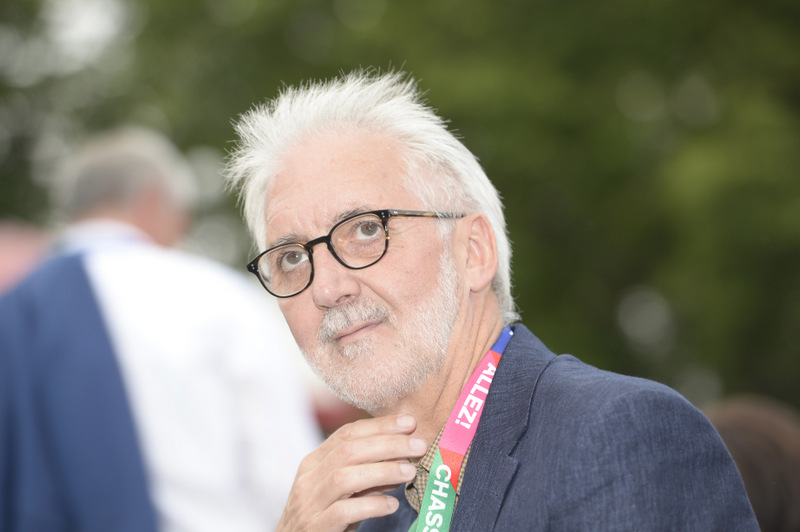
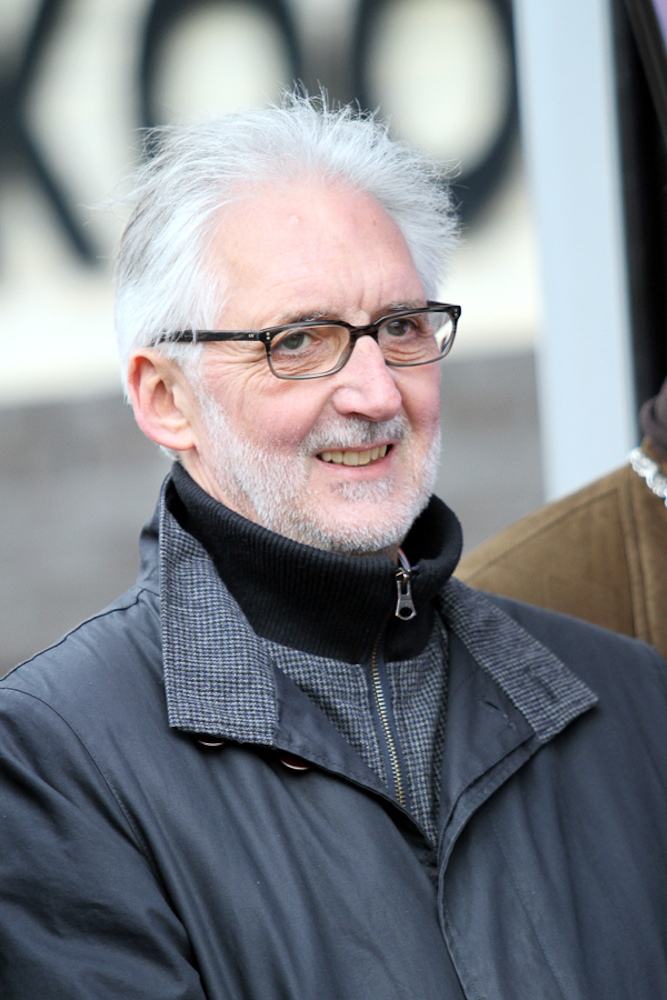
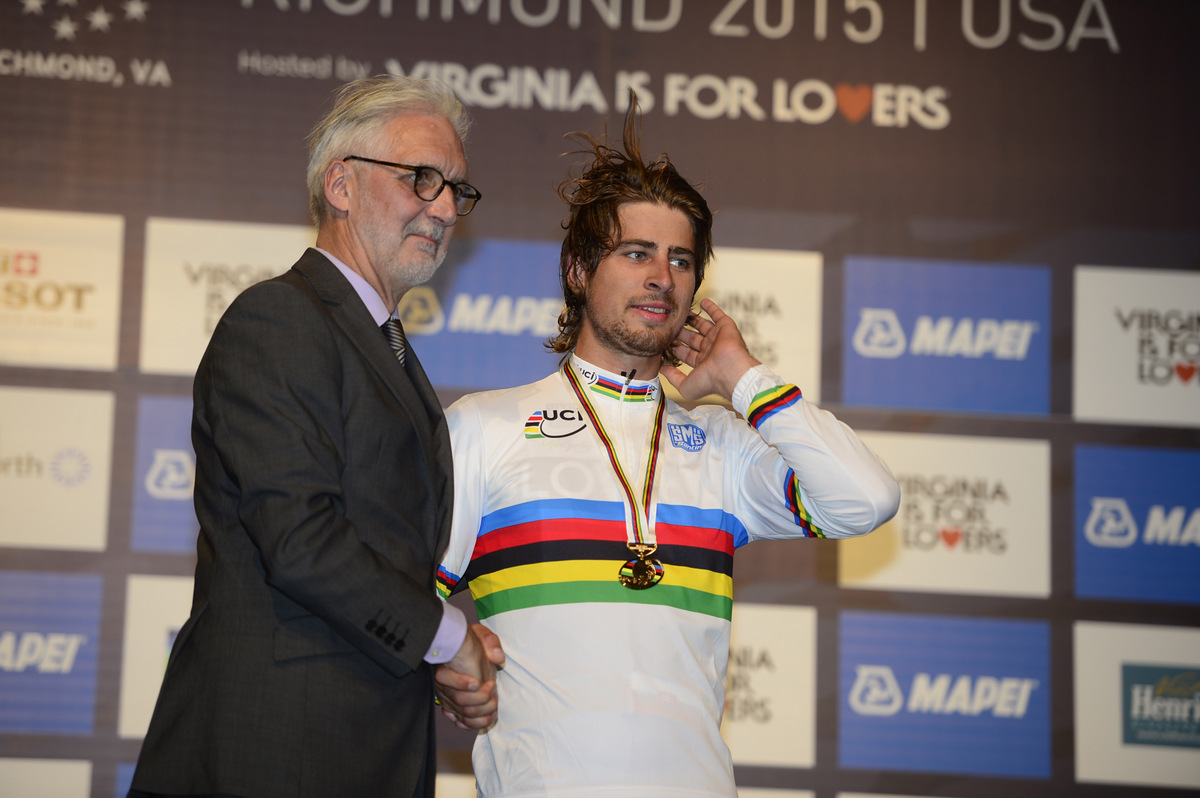
UCI President Brian Cookson was on hand at the recent World Championships in Richmond, Virginia. He sat down for an interview with Cyclingnews' Kirsten Frattini to discuss a series of topics around rider safety, Astana's year-end review, ASO and the WorldTour reforms, sponsorship and the inaugural Women's WorldTour set to kick off in 2016.
UCI to investigate Basque Tour crash, Stetina undergoes surgery
UCI to investigate Pais Vasco and Paris-Roubaix safety incidents
Cookson defends the UCI’s handling of the Astana licence case
TV motorcycle collides with Van Avermaet at Clásica San Sebastián
Sagan abandons the Vuelta a Espana after motorbike incident
Developing improvements to rider safety
Cyclingnews: If we look at the incidents that took place at Pais Vasco with street bollards, at the Vuelta a Espana and San Sebastian with motos, and the need for extreme weather protocol, what are the lessons learned and what new considerations or solutions have the UCI come up with to help improve the riders' safety?
Brian Cookson: The Road Commission is the part of the UCI that is looking at all of those issues, they have a safety and security working group that is similar to the group that looked at the extreme weather protocol, and so on. It's important that we analyse those problems that arose and to try to work out whether there is an increase in some of those problems, or whether it's something that has been there for years and there's a structural problem that needs attention, or whether it's something that's a series of isolated and unconnected incidents. We are not looking at an immediate response but we are looking at a detailed analysis. I think that's our role as the governing body.
Everyone has a responsibility for safety including the riders, still the vast majority of crashes in bike races are rider on rider or judgement errors, or whatever, maybe there is something that we can do about that as well. Everyone has a responsibility for safety, spectators have a responsibility not to do crazy things with selfie sticks and all that sort of stuff, and not to get in the way of the riders, run along side them shouting in their ear, getting in the way.
Equally, the organisations' side has a responsibility to make sure they make the conditions on the road as safe as possible. We are seeing an increase in hazards on the road in terms of traffic-calming devices and so on, and that is something that we are having to address more and more in our sport. I think all of those things are important; the driving, the training of the drivers, the number of motorcycles are all things that we have to look at. While any one may be the case of a human error of judgement at any one time, we have to look at the circumstances that have led up to that.
We had the level-crossing-incident-type thing as well, which we certainly need to review, and we have a new protocol in place and have made some rule changes about that as well.
The latest race content, interviews, features, reviews and expert buying guides, direct to your inbox!
CN: Stemming from the Paris-Roubaix incident? What were those level-crossing rule changes?
BC: Just some minor things to make it absolutely clear that organisers have a responsibility to make sure that there are procedures in place to stop a rider or a peloton if there is a 'closing' level crossing - the [current] rule is 'closed' level crossing.
If you take the Paris-Roubaix incident, for example, it was a very odd combination of circumstances there, I don't want to get into too much detail, but the first thing that struck me was for a railroad crossing where there is a high-speed train that would pass, there were just half barriers? That wouldn't happen in the UK, I know that, but I'm not going to cast any aspersions on French railways or anybody like that. I think all of those things need a clear looking at and clear procedural things.
The number of riders who pushed passed when the barriers were already down, and the very last rider to push passed the Gendarme, literally pushed him out of the way and rode 10 seconds in front of a high-speed train. Well, you know, if he had slipped he'd be under that train now and those riders who were going around the barriers, if one of those riders had fallen and there was a pile of riders in front of that train, we'd be looking at dead riders on the television, and that's not an image that any of us ever want to see.
This is something, like all those other incidents, that we take very seriously and put in place procedures to help avoid them.
CN: When an analysis is done, if changes are made to the rules, will the cycling community know about it right away?
BC: Yes, for sure. We will be looking at a range of things that will strengthen the organisers responsibilities, making it absolutely clear what they should and shouldn't do, making sure that we have the highest quality of drivers of cars and motos, and that we ensure that their behavioural procedures are appropriate. All of these things will come into play, if we need any rule changes we will make those and announce any protocols, like the extreme weather protocol that we announced recently.
A year-end review of the Astana Pro Team
CN: It's been almost a year since the Licence Commission allowed Astana to keep their WorldTour licence, with the condition that they be under close watch. How have they fared so far on that front this season?
BC: The analysis is being conducted by ISSUL [Social and Sports Sciences Institute of the University of Lausanne] in association with the Licence Commission, so if they have any reason to suspect there are problems, they will refer them back to the Licence Commission.
As I understand it, the team have done their best to comply with the requirements given to them by ISSUL, and part of the new so-called Cahier des Charges, which puts a greater level of duty of care and responsibility from the teams to the riders, and so on, has appeared to be going very well. I believe that the team have appeared to be taking their responsibilities seriously and I'm hopeful that the team will be continuing in the future to do those, as long as they do comply with the other criteria they will continue to have a licence.
CN: In the beginning it was you who suggested they have their licence revoked, how do you feel about their season since then? Do you think they have or are working toward building a cleaner image?
BC: I think they have an ongoing responsibility to ensure that they comply to the requirements that have been given to them. I think, let's see at the end of the year. I hope we get through the end of the year without any problems related to doping. I think the team have been, if I can say, I think the team have taken their responsibilities seriously. I think they do want to have a good reputation. I think they do want to be a team that is respected. Everybody knows that they are a team that have had problems in the past, and I know the sponsors, national federation, and so on, are determined so that those problems don't recur.
ASO and the UCI WorldTour reforms argument
CN: There were specific areas of the WorldTour reforms that ASO wasn't on board with. Now that some time has passed, has there been more of a consensus among UCI, ASO and teams over the WorldTour reforms?
BC: ASO are represented in the stakeholders' group that has been looking at the reforms, through AIOCC, the organisers of association, which are represented at the Professional Cycling Council. The Professional Cycling Council agreed to the proposals and endorse the final elements of those proposals again this week. I'm not expecting that ASO will have a major dispute with that. I think that no one wants a war, we all want to work together for the benefit of all of the stakeholders. I think that ASO is a great organisation that has done a wonderful job with its properties. The Tour de France will always be the Tour de France and I guess the biggest bike race in the world. I don't want to damage that or damage ASO. I want them to be stronger. I want them to be as good as they possible can be and I want other organisers to also be profitable and successful, and I want the teams to be on a sound financial basis as well. I think the proposals that we've got have seemed to have gotten a general consent as being the right proposals. I think that ASO, I hope they will find them acceptable. I guess you will have to ask them if they do or not.
CN: How difficult is it to balance the stakeholders' expectations; the needs and the wants of teams, riders, organisers?
BC: It is very difficult. That's why it has taken us much of the last two years to try and get to where we are now. We are still in a relatively early stage of the process. What we have done is agree the fundamental principles. I hope that ASO and the other stakeholders will accept that they have been consulted and involved.
My job is not to work for the benefit of any one stakeholder, my job is to make sure that the UCI balances the needs of all of the stakeholders, organisers, teams, new organisers, new teams, the people want to come into the sport. I want to have an open system where teams and events can come into the system because they deserve to be part of the system. That hasn't been an easy balance to achieve and we still have a lot of work to do on the details but I think we have agreed to the fundamental principles that are acceptable to all of our stakeholders.
Not everyone has gotten everything that they want but I think we have something that will help and allow professional men's cycling evolve in a sustainable way, to protect the beauty of our heritage but at the same time will it be able to exploit new opportunities. Some of those are about new territories for cycling, some are about new sponsors, and so on, what I have been trying to do and what my colleagues are trying to do is to make sure that we don't have a small pie where everyone is arguing about who gets the biggest piece, but we have a bigger pie with a better sharing and a more profitable economic base for our sport for everybody.
CN: There was a similar disagreement with ASO during Pat McQuaid's presidency, how are you dealing with it differently?
BC: I'm not going to go to war with ASO, that's the difference. We can always resolve our differences by sitting around the table and talking with the different stakeholders. You know, my job is not to protect any one set of interests, my job is to balance all of those interests to allow pro men's cycling to grow in that sustainable way that will benefit everyone. I think it would be naïve to expect that everyone agrees to all of the aspects of that, and it's not a surprise that some have a strong position, strong assets and what to protect them, of course they do, but we have to take the overview and that is what we are trying to do.
But I'm not going to do it by banging the table and waving a big stick or whatever, I'm going to try to achieve it by consensus building and by talking and sitting around the table. I think we've gotten there.
CN: Is there a time frame of when we can expect to see the WorldTour reforms complete?
BC: They will start from 2017, so in 2016 there will be some transition, but in 2017 effectively, stage-by-stage, and into 2020. The first 18 teams will have that three-year licence. It is still an open system because it will still be an assessment system of sporting, ethical, financial criteria, and so on, so there is still a possibility of teams to come up and teams to go down, to a degree. They will have a three-year licence and they will be assessed on a broad range of those issues.
Stabalising team sponsorship at the WorldTour level
CN: There appears to be a reduction in WorldTour sponsorship for teams, i.e., one of the reasons Cannondale-Garmin are in the sport are because they merged. There are only 17 WorldTour teams when there should be 18, and teams like BMC only have a contract through 2016. What is the UCI doing to help stabilise the sport and draw in global sponsors?
BC: That is exactly one of the points of the WorldTour reforms, to offer three-year arrangements for the top 18 teams. I think that will help predictability of the sponsorship. Teams sponsors will know that for the next three years they will be in the top-level races, subjective in fulfilling all of the criteria. I think that is a major step forward, yes.
CN: Would it be a considered a success for you to see Dimension Data become a WorldTour team, as the first African team in the WorldTour?
BC: It's not about my personal achievements, but absolutely, the world of cycling would be delighted to have an African-based professional team in the peloton, and on the WorldTour, absolutely.
Women's WorldTour, sponsorship and minimum wage
CN: Since details of the Women's WorldTour have been announced, have you gotten positive feedback from the women's teams, riders and race organisers?
BC: Very positive feedback, not least because it's been the women in those teams and the sponsors of those teams that have come up with this proposal. We facilitated that process, we have women involved in the Women's Commission, of course, women in the Road Commission and in every one of our specialist disciplines as been involved. What we've been trying to do, especially with the Women's WorldTour, is to do things in a way that works for those people who are making women's road cycling happen at the moment, to take account of their expertise and to develop it in an incremental way, and to take some major steps forward like the introduction of the Women's WorldTour next year, and invest in those processes that will help women's road cycling, and do it in a way that the women doing it tells us what they want to see.
CN: Will it be a case of having to navigate through the first year or two of the Women's WorldTour before additional changes are made?
BC: Sure, it is a developmental process. We are going from quite a low point, as it were, but equally that gives us lots of opportunities to do things in an innovative way that perhaps in the men's scene is a bit more difficult. I think you have a greater level of collaboration on the women's side of things from the teams, organisers and riders to want to do things that help things grow and are of mutually beneficial effect. Yes, we will see those rules changing as time goes by and as women's cycling gets stronger.
CN: Does the Women's WorldTour provide a similar sense of security for sponsors as the men's WorldTour?
BC: There is a registration process for the women's teams as in the men's teams, and the top 20 rankings will be part of the Women's WorldTour. At the moment we don't want to overload with restrictions and requirements over the development of the women's teams, so we are not quite imposing the same level of detail as we are for the men's teams at the moment. We have to encourage them not kill them with kindness, as it were. I think we are in a really interesting and exciting phase now where we are providing that environment in which women's pro teams can thrive and can attract sponsors, and get better media coverage.
CN: One of the major subjects was minimum wages for women. Has there been any firm plans to implement minimum wages in the near future? One of the potential problems is that implementing minimum wage rules could put pressure on teams, which already have low budgets, to struggle with being able to provide minimum wages. Has the UCI considered ways of helping women's teams find more funding in order to then be able to offer their riders a minimum wage?
BC: That is part of the process in making women's professional cycling more economically strong and more financially viable. That is why we are doing these things, that's why we have invested in television coverage up until now and that's why we are pushing very hard on the Women's WorldTour to make that happen.
I was, perhaps naïvely, in favour of a women's minimum wage until the women involved in those teams said 'it won't work, you can pass any rule you want but all you'll do is… therefore those teams won't register as women's teams, they'll go for amateur status.' Trying to encourage that process is much more important and much more economically sustainable than me passing a rule saying, 'that shall happen.' The answer will be, 'no it won't because we can't afford it.'
There is nothing to stop any one team from paying a minimum wage if they want to, they can pay them the same rate as the men's minimum if they want to, there is nothing to stop them. If teams can bring in the money and the sponsors then they can do that. They can pay much, much more. But we have to do things in the right way that allow that economically sustainable development of women's pro cycling that doesn't kill it.
First World Championships held in the US in 29 years
CN: Have you, so far, been pleased with the World Championships in the US? Has it been a success?
BC: I think it has been a huge success. Everyone was happy, the venue was great, the courses were good, perhaps not as hard as people thought. The American junior women were first two, so everyone loves a home winner, so that was great. The time trials were really exciting as well. I think the weekend's races will be brilliant. Everyone was happy to be here, they are getting a good welcome.
CN: Have you met with Derek Bouchard-Hall, and what are your thoughts on his leadership role at USA Cycling?
BC: I'm sure he will be a big success. He's a dynamic young man who knows the sport really well. He has the right professional background and business expertise and I'm sure he will be a success in his role.

Kirsten Frattini has been the Editor of Cyclingnews since December 2025, overseeing editorial operations and output across the brand and delivering quality, engaging content.
She manages global budgets, racing & events, production scheduling, and contributor commissions, collaborating across content sections and teams in the UK, Europe, North America, and Australia to ensure audience and subscription growth across the brand.
Kirsten has a background in Kinesiology and Health Science. She has been involved in cycling from the community and grassroots level to professional cycling's biggest races, reporting on the WorldTour, Spring Classics, Tours de France, World Championships and Olympic Games.
